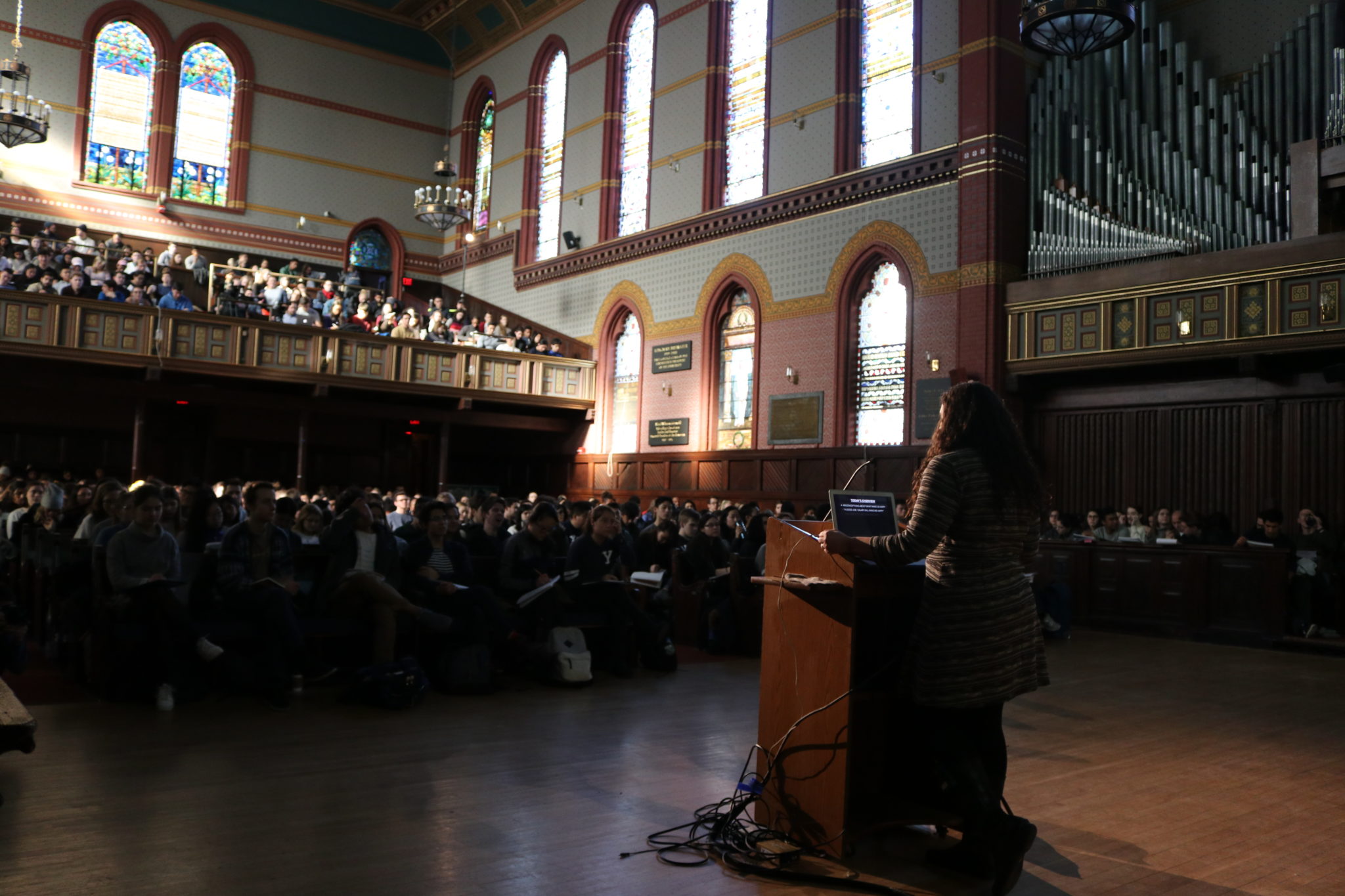Happiness in the time of COVID-19: Santos’s “The Science of Well-being” gains over a million new subscribers

Kai Nip
As nations navigate a pandemic of unprecedented proportions, people across the globe have retreated into their homes to flatten the curve of COVID-19 spread. During this time, the online iteration of the world-famous Yale lecture class “Psychology and the Good Life” has seen a large influx of subscribers from several different countries.
Taught by Laurie Santos, professor of Psychology and Head of Silliman College, the class was originally offered at Yale in the spring of 2018. With over 1,000 students enrolled, it became the most popular course in Yale history. Under a new title, “The Science of Well-being,” the 10-week class is being offered for free on the Coursera platform and has garnered over one million new subscribers over the past few weeks alone.
Santos told the News she believes the recent surge in sign-ups reflects an increased motivation to pursue evidence-based interventions to safeguard mental health during the pandemic.
“Everyone knows how to protect their physical health — washing hands and keeping six feet apart — but I think people want similarly actionable tips to improve their mood and well-being during this challenging time,” Santos wrote to the News in an email.
As physical distancing measures are enforced around the world, Santos stresses the importance of remaining socially connected. “The good news is that physical distancing doesn’t mean social isolation,” she said. According to her, in moments as trying as these, harnessing technology to take back social elements our lives have lost is essential in preserving our mental health.
With changing circumstances upending our day-to-day habits, Santos also emphasized that maintaining a routine can have transformative effects.
“We’re creatures of habit, in part because stable habits give us more control,” she said. “By finding a routine while sheltering in place, we can reduce the cognitive fatigue of each individual decision about the day, which can make us feel a bit more in control.”
In her course, Santos also refers to empirical evidence to discuss how mindfulness and meditation can reduce anxiety and negative emotions. She told the News that “taking time to focus on our breath can better regulate our overly active sympathetic nervous systems.”
Michael Borger ’20, a senior in Santos’s college who took the class when it was offered at Yale, discussed ways in which he believes the content of the course can be helpful right now.
“One thing she taught us that stood out was the concept of hedonic adaptation, or our ability to adapt to new situations,” he said. “While this does not mean we won’t feel pain or loss in the coming months, it does mean that we are resilient and that we will adjust to our new realities, whatever they may be.”
Antonia Peixoto, a law student at Pontifical Catholic University of Rio de Janeiro, has signed up to take the class on Coursera in between her own classes, which have moved to online platforms. Like many around the world, she hopes to learn more about what she can do to keep herself grounded amidst the pandemic.
“During a crisis, it’s only natural that we begin to question ourselves, as well as our capacity to deal with so much distress,” she said. “One of the reasons why I think this course is so relevant is that it shows us the power of our own brains over our well-being. There has never been a time when channeling that power has been as important as now.”
Santos recently recorded a series of new episodes on Coronavirus for her popular podcast, “The Happiness Lab.” Through these episodes, which include discussions on how to “Beat Your Isolation Loneliness” and “Keep Your Relationship Happy,” she hopes to convey the message that however awful a situation may be, how we react is ultimately up to us.
In each one of the “Coronavirus Bonus” episodes, Santos hosted guests including psychologist Eli Finkel, director of the Relationships and Motivations Lab at Northwestern University, and Yale student Liam Elkind ’21, co-founder of “Invisible Hands” — an initiative that helps people in vulnerable groups get supplies without leaving their homes.
“Each episode of the podcast goes through a different tip, from reframing the crisis as a challenge to protecting your romantic relationships to using the power of social emotions to finding ways to connect through technology,” Santos said. “The hope is that I’m giving my listeners evidence-based tips that they can put into practice immediately to feel better during this stressful time.”
The second season of “The Happiness Lab” will be launched on April 27.
Maria Fernanda Pacheco | maria.pacheco@yale.edu







